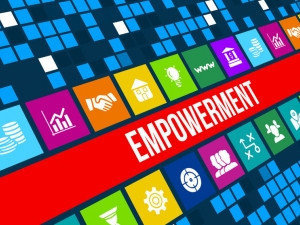
The Black IT Forum (BITF) is taking Vodacom to task on its recent claims over how transformed the telecoms operator is and its support of small, medium and micro enterprises (SMMEs).
"Corporate entities like Vodacom and many others must be extremely careful and sensitive to the state of economic recession, high unemployment (especially youth) and lack of transformation in the economy before they make grandiose announcements in the media," the BITF told ITWeb in a statement.
The forum was reacting to comments made by Vodacom CEO Shameel Joosub in a printed transformation supplement of the Sunday Times, published on 4 June, entitled: "Transformation is in our DNA".
The BITF argues that transformation is a broad term that is often misinterpreted by organisations that would like to be seen as 'transformed'.
"In our understanding, Vodacom has yet to undergo the necessary changes in condition, nature, or character to serve as a desirable model of transformation," the BITF says.
In the supplement, Vodacom mentioned its latest transformation successes and investments, including R28 billion spent with broad-based black economic empowerment (BBBEE) suppliers, of which R2.8 billion was spent with black-owned SMMEs. It also said R7.2 billion went to 51% black-owned suppliers and over R5 billion to 30% black, female-owned suppliers.
However, the BITF questions who exactly these enriched individuals are, claiming the "wealth created is not visible to the ground".
"The claim of an investment of R841 million on developing SMMEs in ICT comes as a shock to BITF, as every year about 80% of said SMMEs close shop with most leaving in search of employment 'gold' in Gauteng," it says.
The group believes an "evident lack of transformation has failed the South African economy" and South Africans because genuine transformation "would see commitment that in turn would quell matters such as youth unemployment".
Reacting to the claims made by the BITF, a Vodacom spokesperson told ITWeb the group's transformation track record "speaks for itself" and that as Joosub noted in the Sunday Times article: "While there have many been success stories and much achieved, it is clear that the bulk of work is still ahead of us.""
"In full compliance with the codes and the BBBEE Act, all information provided with regards our contributions to the various BBBEE elements have been independently verified by our SANAS-accredited verification auditors, in strict accordance to the guidelines outlined in the DTI-published BBBEE Verification Manual. We strongly reject inferences to the contrary," Vodacom's spokesperson told ITWeb.
The BITF also questions the effectiveness of Vodacom's R750 million investment in The Innovator Trust, which aids the development of small black-owned ICT businesses.
It has an issue with the fact that of Vodacom's 205 stores, only 35% are over 51% black-owned. The statistics come from the supplement, which also says 92% of Vodacom 13 express stores are 100% black-owned. The BITF, however, also takes issue with the idea that Vodacom would buy back stores for resale to black people "at the risk of more debt for black people, surely".
Vodacom says it has an open door policy and is "fully committed to engaging with the national body of BITF in this regard to ensure we resolve this matter amicably".
According to Empowerdex's 2016 list of the JSE's most empowered companies, Vodacom came in first place under the 2007 Codes of Good Practice - ahead of Nedbank, Old Mutual, FirstRand and Standard Bank, which made up the top five. Telkom came 40th and MTN in 53rd place.
Vodacom was previously a level two BEE contributor but due to November 2016 changes to the ICT Sector BEE Code, it is now a level four BEE contributor. Joosub also said in the article that 73% of Vodacom's workforce is black, with 55% representation at senior management level.
The BITF says it will continue to engage with other corporate bodies, "posing the very same questions being raised to Vodacom".
Share